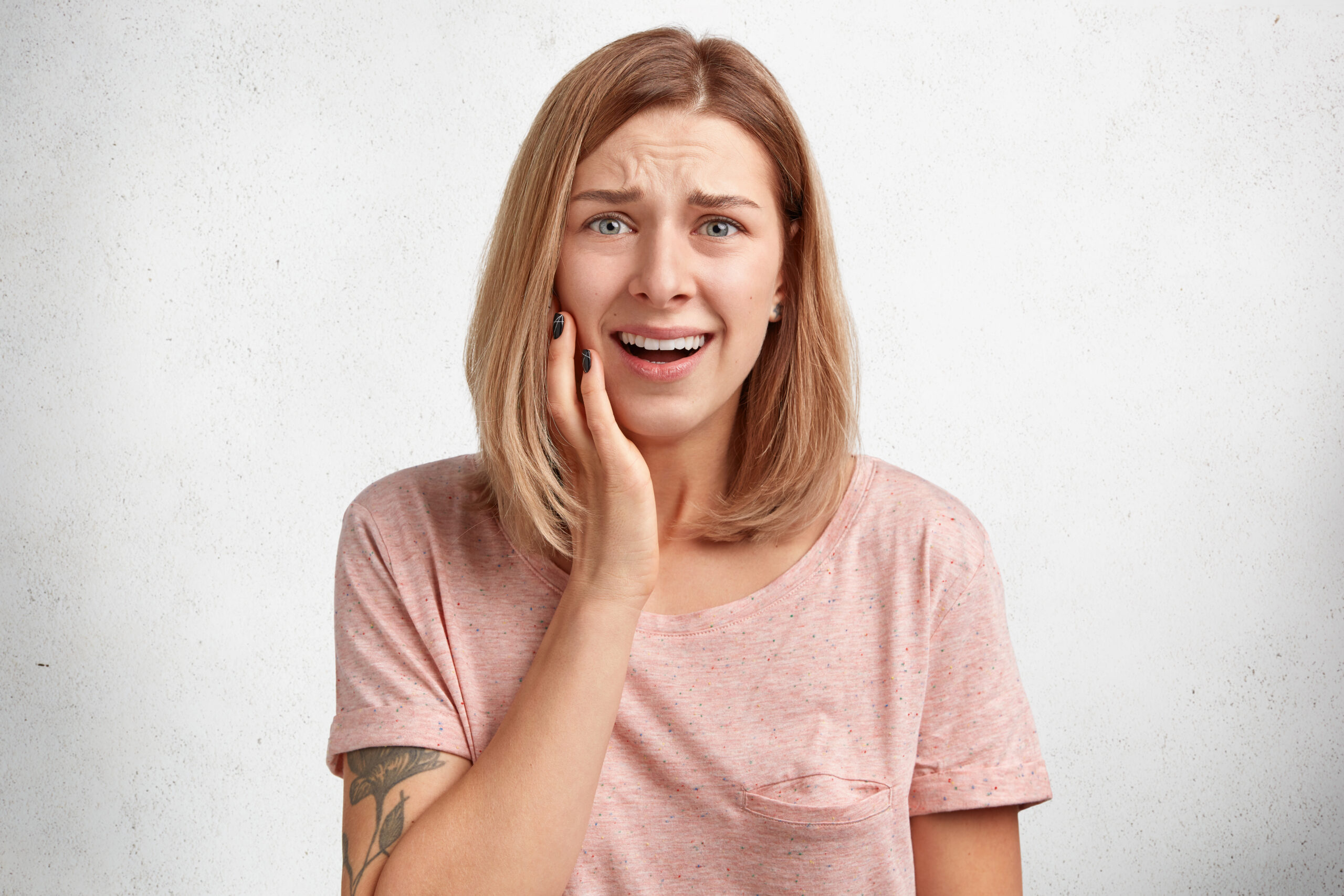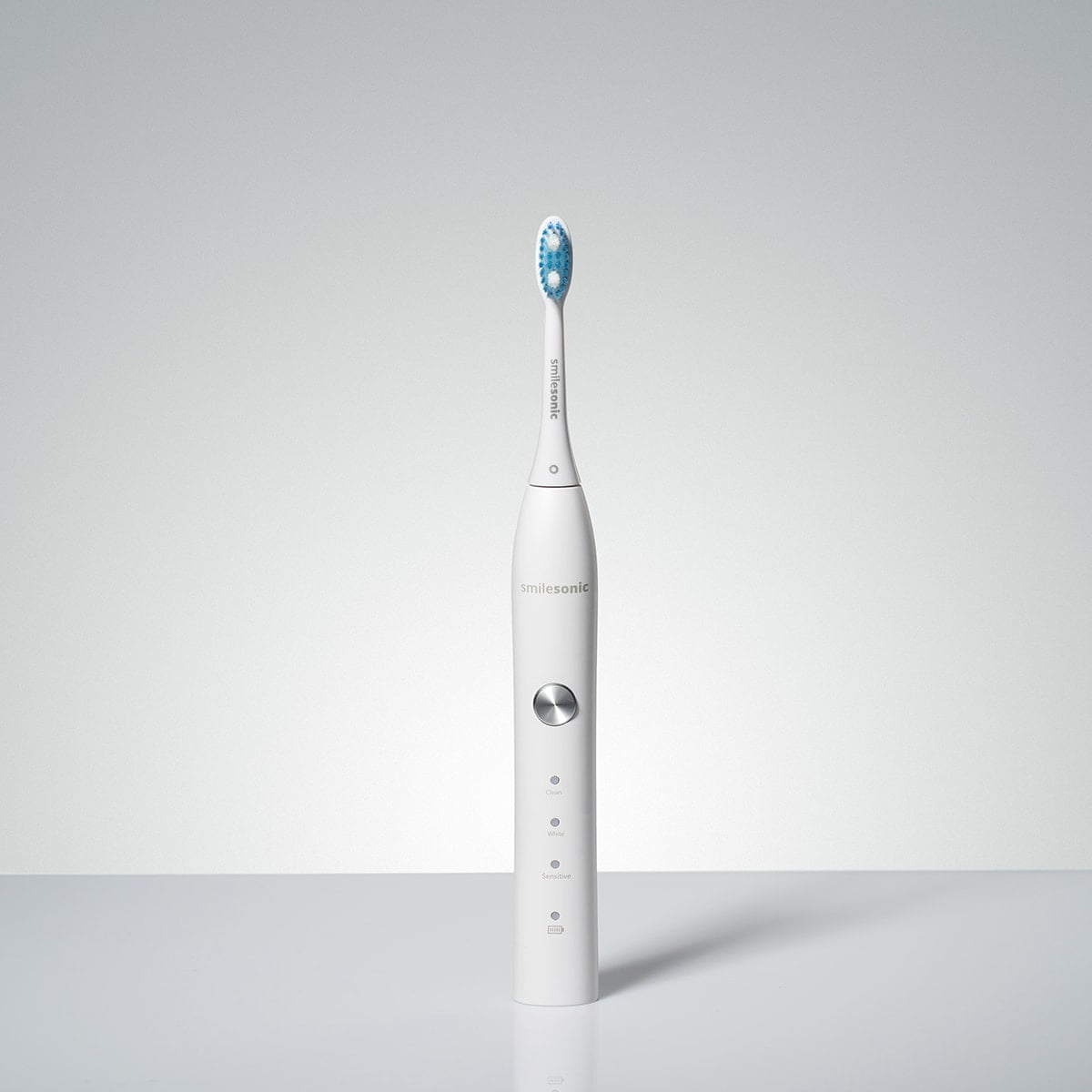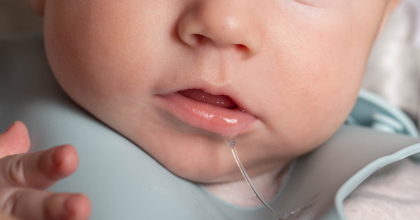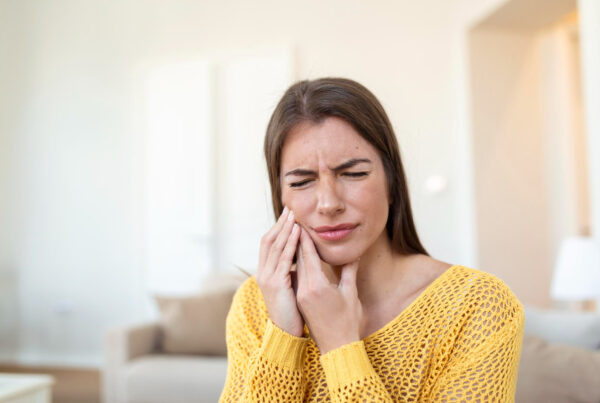Biting your lips and cheeks – causes and consequences
The habit of biting lips and the inside of the cheeks is surprisingly common. At first, it may seem harmless, but over time it can lead to serious consequences. Read our article to learn about the causes and effects of lip and cheek biting, as well as how to overcome this habit.
Causes of lip and cheek biting
Some people claim that biting their lips and cheeks helps them concentrate during tasks or cope with stressful situations. Often, this behavior occurs unconsciously. It’s a form of self-regulation, a natural mechanism the body uses to maintain both physical and emotional balance. Other examples of such reactions include sweaty palms or muscle tremors caused by stress.
Stress and bruxism – the hidden triggers
People who experience high levels of stress, whether at work or in their personal lives, are also more prone to a condition called bruxism. This involves clenching or grinding the teeth, especially during sleep. Most of us are unaware that our jaw performs intense movements at night. This often results in waking up with headaches or pain in the temporomandibular joints. Bruxism can also contribute to spinal issues. When grinding teeth, we may damage the lips or inner cheeks. Tension in the jaw and cheek muscles pushes the oral mucosa closer to the teeth, making it more prone to injury.
Poorly fitting dentures can harm your lips and cheeks
Ill-fitting dentures can also irritate and damage the inner cheeks and lips. If the denture components are causing discomfort or injuring the mucosa, it is essential to visit a dental office. The specialist will adjust the appliance by smoothing or trimming the problematic areas.

Consequences of lip and cheek biting
1. Oral leukoplakia
Small injuries in the mucosa usually heal quickly. However, frequent trauma can lead to erosions. When white patches or streaks appear on the mucosa, it may indicate oral leukoplakia—a precancerous condition that, if left untreated, may develop into cancer. A dental examination is necessary to determine the cause and initiate proper treatment.
2. Canker sores
Cheek biting can lead to the development of painful ulcers known as canker sores. These lesions typically heal within a week but can be uncomfortable during daily activities like eating and speaking.
3. Orthodontic changes
Another possible consequence of frequent cheek biting is a shift in jaw position and bite alignment. In such cases, treatment may require not only orthodontic intervention but also dental physiotherapy, which includes oral muscle rehabilitation.
4. Minor aesthetic problems
Lip biting can result in dryness and cracking of the lips, which may cause both discomfort and aesthetic concerns.
Read more: White coating on the tongue
How to stop biting your lips and cheeks?
The first step is to learn stress management techniques. One popular method is meditation, which helps with relaxation, calming the mind, and reducing psychological tension. Jacobson’s progressive muscle relaxation exercises may also be effective. These involve systematically tensing and then relaxing different muscle groups, improving awareness and control over physical stress responses. Physiotherapy support can also be helpful. Everyone should find their own preferred way to relieve daily stress—lip and cheek biting should not be one of them. Some may benefit from physical activity, while others may prefer reading or listening to music.
Simple tricks to replace the habit
Chewing gum or sucking on candy can help keep your mouth busy and reduce the urge to bite. However, use this strategy in moderation—excessive use can strain the temporomandibular joints and cause hypertrophy of the jaw muscles, leading to pain and discomfort.
Relaxation splint for bruxism-related damage
If lip and cheek injuries are related to bruxism, consider using a relaxation splint. These are available in standard forms, but a dentist can also create a custom-made one based on your dental impressions. A relaxation splint protects soft tissues in the mouth from injury during teeth grinding.
Care for damaged oral tissues
Breaking the habit of biting lips and cheeks should go hand-in-hand with healing injured tissues. Maintain excellent oral hygiene to reduce bacterial load. You can apply topical products like Anaftin, which form a protective layer that shields nerve endings from irritants. Avoid spicy and acidic foods, which can delay healing. Alcohol and smoking should also be eliminated, as they negatively affect recovery. For damaged lips, use moisturizing lip balms or creams, and avoid peeling off dry skin manually.





